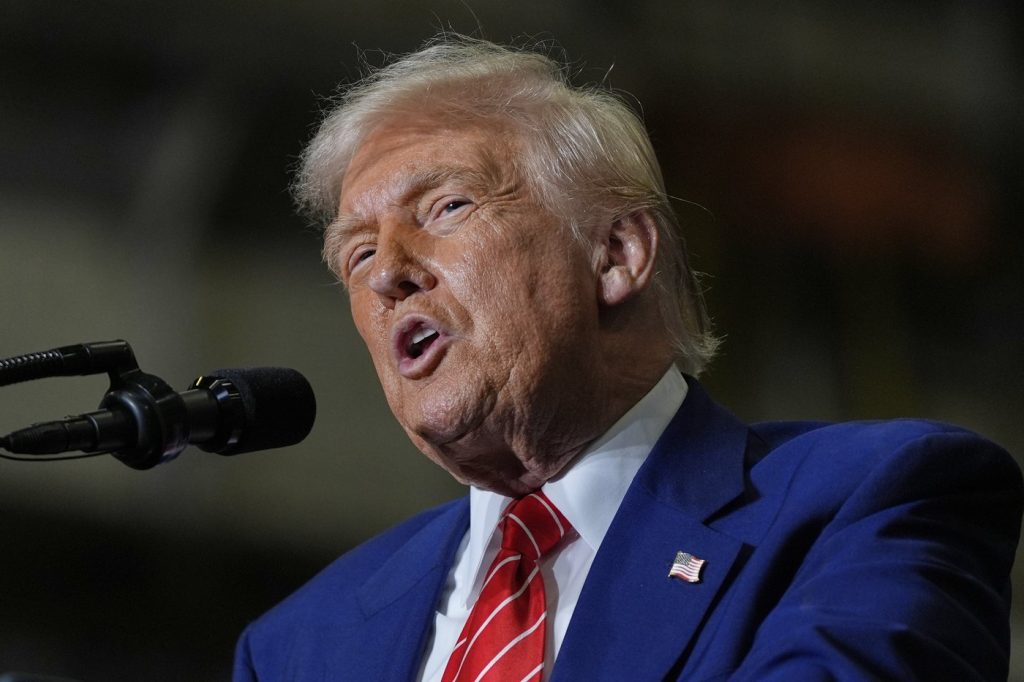WASHINGTON (AP) - President Donald Trump is urgently pushing for his major tax cuts and spending cuts bill, often referred to as his "big, beautiful" package, to be signed into law by the Fourth of July. The deadline is significant not only for Trump's administration but also aligns with the Treasury Department's warnings about the nation's fiscal capacity. The President has engaged Senate Majority Leader John Thune and other senators in personal discussions, utilizing both incentives and pressure to accelerate the legislative process.
Currently, the bill, which exceeds 1,000 pages, has faced a challenging path in the Senate after narrowly passing the House with a single vote. Trump has been vocal on social media, emphasizing the historic nature of the legislation and urging senators to expedite the process. He stated, "Passing THE ONE, BIG, BEAUTIFUL BILL is a Historic Opportunity to turn our Country around," and expressed a desire for the legislation to reach his desk before the holiday.
Thune, who leads the Senate, along with House Speaker Mike Johnson, is acutely aware of the precarious nature of their slim 53-seat majority. As Republican lawmakers face immense pressure from Democrats, who are vocally opposing proposed cuts to Medicaid and food assistance programs, their political futures become intertwined with the bill's success. The Democratic Party is actively campaigning against the proposed cuts, positioning them as detrimental to average Americans while framing the Republican proposals as benefiting the wealthy.
Thune acknowledged the importance of member support for the bill, stating that "individual members are going to stake out their positions," yet emphasized the necessity of achieving a simple majority. The package aims to renew the tax breaks initially enacted in 2017 during Trump's first term and introduce new incentives, including policies such as a no-tax on tips and a substantial allocation of $350 billion for border security and national defense.
To counterbalance over $4.5 trillion in tax cuts and mitigate the increase of the national debt, Republicans are proposing to impose work requirements on certain government safety net services. This initiative could lead to approximately 8.6 million individuals losing their healthcare, while nearly 4 million might be affected by cuts to the Supplemental Nutritional Assistance Program (SNAP). Furthermore, the package includes an increase in the nation’s debt limit by $4 trillion to facilitate necessary spending without risking fiscal default.
Democrats, especially Senate Minority Leader Chuck Schumer, have been unsparing in their critiques of Trump’s bill, declaring it "ugly to its very core." Schumer argues that the proposed tax cuts are a ruse that will inevitably harm millions while benefitting a select few. As Congress awaits the Congressional Budget Office's analysis of the fiscal ramifications of the bill, Republicans are preparing to contest any negative findings, labeling them as flawed assessments.
In a shift towards more confrontational tactics, Trump has recently targeted Republican dissenters, particularly Senator Rand Paul, criticizing him for his opposition to the debt ceiling increase. Trump's contentious remarks, calling Paul's ideas "crazy," reflect the strategic maneuvering occurring within party lines as the deadline approaches. Treasury Secretary Scott Bessent has reiterated the urgency of raising the debt ceiling, warning that the government could run out of funds to meet obligations if action is delayed past early August.
As these political dynamics unfold, Thune and Johnson face mounting demands for adjustments to the original package from their colleagues. Critical discussions are ongoing, specifically regarding tax policies that may need alterations to secure broader support among Senate Republicans. Potential revisions include lowering the proposed cap on state and local tax (SALT) deductions, which significantly affect lawmakers from higher-tax states like New York and California, and reassessing provisions that may appear to cut Medicaid, which has raised concerns among several Republican senators.
As deliberations progress, key voices such as Senators Josh Hawley, Susan Collins, and Lisa Murkowski continue to express apprehension about potential ramifications for Medicaid recipients. With the July 4th deadline drawing near, the political landscape remains tense as all parties strive to find a pathway that ensures legislative success while addressing their constituents' concerns.











